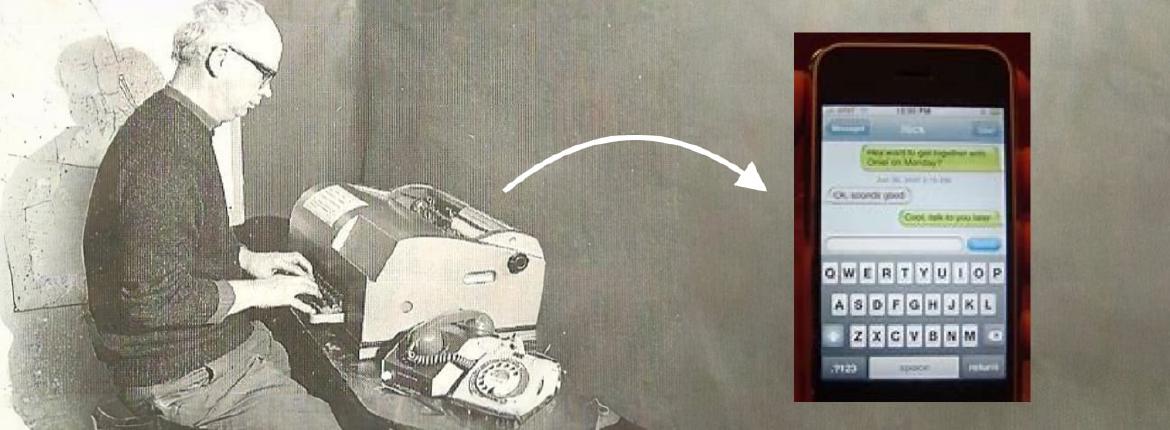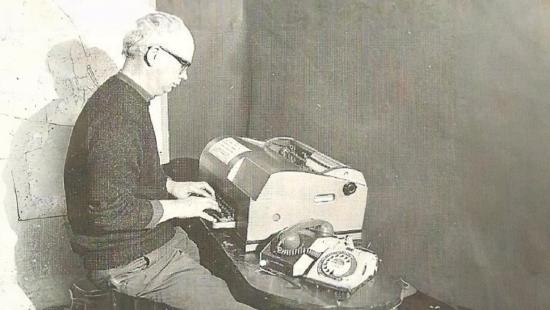10 years before Deafax was founded, the Breakthrough Trust was in existence and doing groundbreaking work. Its deaf directors both of whom later became good friends of Deafax, made the first UK telephone call. Andrew Kenyon in London and David Hyslop in Birmingham.
They used reconditioned Post Office Teleprinters (TTY) and a Phonetype (modem) system invented by a deaf American scientist Robert Weitbrecht. It was set-up by Michael King-Beer of Finedon Communications a Breakthrough Trust’s initiative.
It was an exciting time as it was the beginning of greater independence for deaf people affording them much longed for privacy. Gone was the reliance on their hearing peers/family/friends to make a telephone call on their behalf.

However, it did entail a mammoth effort to attempt to supply TTYs to all deaf people in the UK who wanted to make a telephone call independently, as two compatible devices at each end of the line to talk to each other were required. From that year forward things continued to progress through the development of a range of telecommunication devices including Vistel 1, Vistel 11 and Minicoms before advancing to computers and todays smart phones.
Relay phone service
In the early 1980s, a prototype telephone relay service was introduced – RNID’s TED, which became the direct forerunner of RNID Typetalk and todays RelayUK run by BT. This introduction meant the deaf community could make a telephone call via Relay operator to any hearing person. The introduction of mobile phones using SMS, FaceTime, WhatsApp, email, zoom and many other apps today is widespread. Deaf people can now use a telecom service on equal terms with hearing people.
Deafax is supporting an event to be held April 2024 to celebrate the golden anniversary of the first UK Telephone call. We will be acknowledging the early pioneers of deaf telecoms without which we would not have the technology of today.

